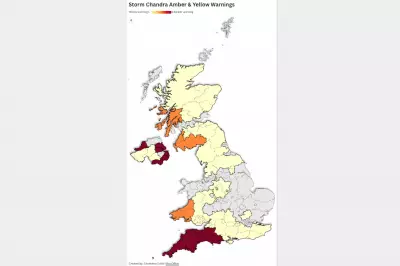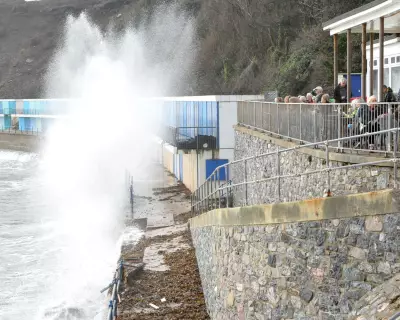
Health authorities across the UK are on high alert as the arrival of spring brings with it the deadly phenomenon known as 'thunderstorm asthma' – a potentially fatal condition that could affect thousands of unsuspecting residents.
The alarming weather-health combination occurs when specific weather conditions trigger severe asthma attacks in otherwise healthy individuals, creating what experts describe as a 'perfect storm' for respiratory emergencies.
What is Thunderstorm Asthma?
This rare but dangerous phenomenon occurs during spring thunderstorms when high pollen counts are followed by specific weather patterns. The storm's downdrafts concentrate pollen particles at ground level, where moisture causes them to rupture into tiny fragments small enough to penetrate deep into the lungs.
These microscopic particles can trigger sudden and severe asthma attacks in people who have never experienced asthma symptoms before, overwhelming emergency services and hospital departments within hours.
Who is at Risk?
While those with diagnosed asthma are particularly vulnerable, health experts emphasize that anyone with hay fever or seasonal allergies could be at risk during these weather events. Even individuals without any known respiratory conditions have been affected in previous outbreaks.
The condition doesn't discriminate by age or fitness level, making widespread awareness crucial for public safety.
Protective Measures Recommended
Medical professionals advise taking these precautions during high-risk periods:
- Stay indoors before, during, and after thunderstorms
- Keep windows and doors closed
- Use air conditioning instead of natural ventilation
- Carry prescribed reliever medication at all times
- Monitor pollen forecasts and weather warnings regularly
Emergency Response Preparedness
Hospitals and emergency services across major UK cities are updating their response protocols based on lessons from previous thunderstorm asthma events that overwhelmed healthcare systems in other countries.
The NHS has issued updated guidance to GPs and healthcare providers, emphasizing the need for rapid response systems during high-risk weather conditions.
Health officials urge anyone experiencing breathing difficulties during these conditions to seek immediate medical attention rather than waiting for symptoms to improve.





